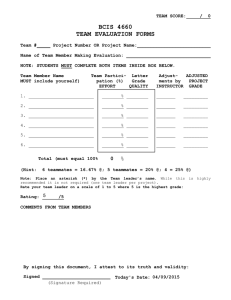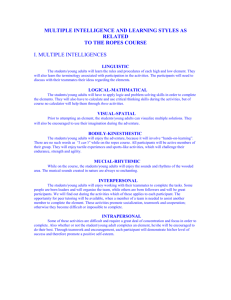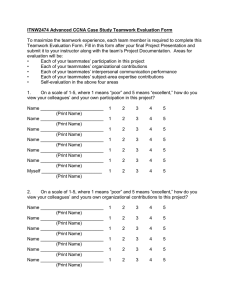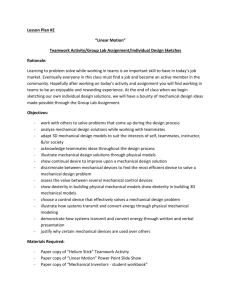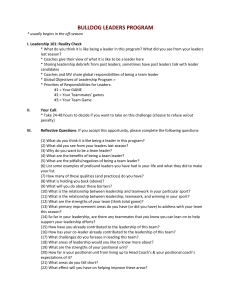Teamwork: 16 Steps to Building a High-Performance Team
advertisement
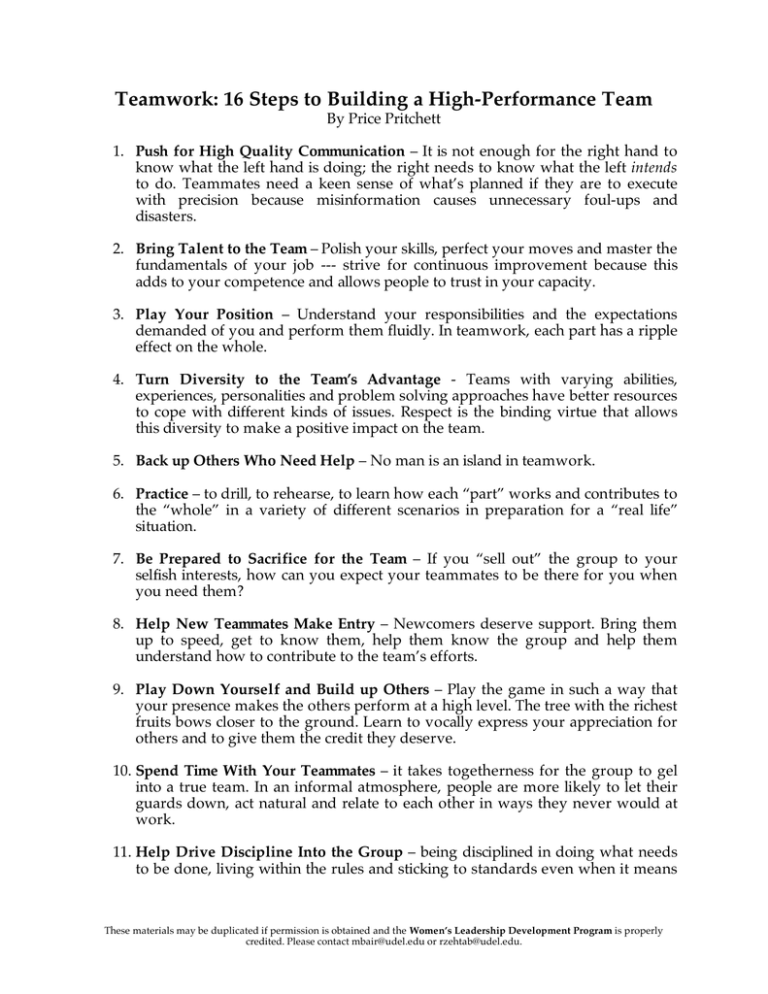
Teamwork: 16 Steps to Building a High-Performance Team By Price Pritchett 1. Push for High Quality Communication – It is not enough for the right hand to know what the left hand is doing; the right needs to know what the left intends to do. Teammates need a keen sense of what’s planned if they are to execute with precision because misinformation causes unnecessary foul-ups and disasters. 2. Bring Talent to the Team – Polish your skills, perfect your moves and master the fundamentals of your job --- strive for continuous improvement because this adds to your competence and allows people to trust in your capacity. 3. Play Your Position – Understand your responsibilities and the expectations demanded of you and perform them fluidly. In teamwork, each part has a ripple effect on the whole. 4. Turn Diversity to the Team’s Advantage - Teams with varying abilities, experiences, personalities and problem solving approaches have better resources to cope with different kinds of issues. Respect is the binding virtue that allows this diversity to make a positive impact on the team. 5. Back up Others Who Need Help – No man is an island in teamwork. 6. Practice – to drill, to rehearse, to learn how each “part” works and contributes to the “whole” in a variety of different scenarios in preparation for a “real life” situation. 7. Be Prepared to Sacrifice for the Team – If you “sell out” the group to your selfish interests, how can you expect your teammates to be there for you when you need them? 8. Help New Teammates Make Entry – Newcomers deserve support. Bring them up to speed, get to know them, help them know the group and help them understand how to contribute to the team’s efforts. 9. Play Down Yourself and Build up Others – Play the game in such a way that your presence makes the others perform at a high level. The tree with the richest fruits bows closer to the ground. Learn to vocally express your appreciation for others and to give them the credit they deserve. 10. Spend Time With Your Teammates – it takes togetherness for the group to gel into a true team. In an informal atmosphere, people are more likely to let their guards down, act natural and relate to each other in ways they never would at work. 11. Help Drive Discipline Into the Group – being disciplined in doing what needs to be done, living within the rules and sticking to standards even when it means These materials may be duplicated if permission is obtained and the Women’s Leadership Development Program is properly credited. Please contact mbair@udel.edu or rzehtab@udel.edu. hard work, all these together with practice, contributes to a team’s performance being filed to a razor sharp edge. 12. Make Sure You Make a Difference – Contribute to a team in such a way that you clearly add value and do what counts. Make enough of a difference that the team would obviously miss you if you weren’t there. 13. Give Attention to Group Process – monitor the team not only to maximize efficiency and effectiveness but to find the process problems when they are small and haven’t caused any damages yet. 14. Help Create a Climate of Trust – When challenges occur, your integrity becomes evident when you keep your word, honor your commitments, are consistent, play fair and others can count on you to “be there”. A climate of mistrust must be avoided because they are barriers to cooperative effort. 15. Strengthen the Leader Through Good Fellowership – As a team player, take initiative, think for yourself, give yourself permission to take appropriate action, align your efforts with the rest of the team and show support for who ever is in charge. 16. Be a Good Sport- show grace when you loose and share the spotlight when you win; promote harmony, play fair, show respect for others rather than putting them down, finding fault or promoting yourself at their expense. Secret: You and your teammates must take personal responsibility for overa ll team performance. The performance of each person acts as a cata lyst to the others – the whole being more th an the sum of its parts. These materials may be duplicated if permission is obtained and the Women’s Leadership Development Program is properly credited. Please contact mbair@udel.edu or rzehtab@udel.edu.
